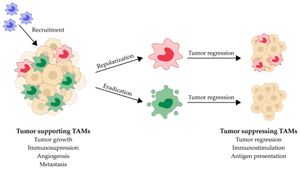The nation of Sweden is reeling from the devastating mass shooting at Risbergska School in Örebro, which has resulted in the loss of 11 lives, marking it as the worst school shooting in the country's history. The alleged shooter, reported to be 35-year-old Rickard Andersson, has been described by relatives as a "loner" who struggled with mental health issues. The incident unfolded on February 4, 2025, when the suspect armed himself with multiple firearms and opened fire at the adult education facility, before reportedly turning the gun on himself.
According to Swedish media outlets, the attack began around 12:30 PM local time, causing panic as students and teachers scrambled to find safety. Eyewitnesses recounted the horror of hearing gunshots and screams, with one student, Andreas Sundling, stating, “We heard three bangs and loud screams.” Many barricaded themselves inside classrooms and took measures to protect their fellow students during the chaos.
Authorities quickly responded to the scene, engaging in a gunfight with Andersson as they attempted to secure the safety of those inside the school. Despite the police's prompt action, the tragic loss of life is felt deeply across the nation. Prime Minister Ulf Kristersson referred to February 4 as “a dark day” for Sweden, emphasizing the need for solidarity during this painful time. "Being confined to a classroom with fear for your own life is a nightmare and no one should have to experience it," he stated, highlighting the trauma faced by those caught up in the violence.
The investigation following the shooting has revealed troubling details about Andersson's life. He reportedly lived alone, was unemployed, and harbored mental health issues. Despite being denied military service, he held licenses for multiple hunting rifles, raising questions about gun ownership regulations and mental health assessments. Swedish National Service Agency records suggest he was informed multiple times during his youth about his unsuitability for military service due to not meeting educational qualifications.
King Carl XVI Gustaf and Queen Silvia of Sweden paid their respects at the memorial site near the school, laying flowers to honor the victims. The King poignantly remarked, "A grieving process is hard to do alone," encapsulating the collective mourning felt throughout the country. The royal visit served as a symbol of unity and empathy as both leaders and citizens come together to support the families of those affected by the tragedy.
The shooting has also drawn international responses, with leaders from across Europe expressing their condolences. EU Commission President Ursula von der Leyen described the incident as "truly horrifying," reinforcing the sentiment shared by many. Danish Prime Minister Mette Frederiksen conveyed her sadness over the events, calling the situation "terrible" and extending support to Sweden during this difficult time.
Reports indicate Andersson entered the school dressed in military clothing and was armed with three guns and a knife. His motive remains unclear, as police have not identified any ideological reasons behind his actions and have ruled out connections to gang violence or terrorism. Local police chief Roberto Eid Forest confirmed the shooter acted alone and there was no prior indication of potential threats from Andersson.
Survivors of the attack have expressed their harrowing experiences. Nursing student Hellen Werme remembered hiding beneath furniture, fearing she would not survive the ordeal. “I never want to go back there,” she lamented. Others recalled their astonishing acts of bravery, attempting to save those around them. The gravity of the event has not only affected those directly involved but has echoed throughout the community, highlighting the urgent need for support systems for those traumatized.
The community of Örebro has opened memorial services and support centers for residents to mourn and seek counseling as the impact of such violence weighs heavily on their hearts. This devastating shooting raises concerns about the rise of gun violence, especially as Sweden has faced increasing challenges with gang-related crime over the years. Although such school shootings remain exceedingly rare, the shocking nature of this incident has sparked dialogue about the need for comprehensive reforms surrounding firearms control and mental health interventions.
The days to come will be filled with tributes honoring the victims of this tragedy and efforts to offer support to affected families. Prime Minister Kristersson has called for collective compassion, urging all Swedes to reach out to those grieving. “Together, we must help the injured and their relatives bear the grief and weight of this day,” he emphasized, reminding the nation of the solidarity required to endure this tragic chapter.
Sweden, once known for its safety, now faces the long path of healing following this unprecedented event. The memory of those lost at Risbergska School will undoubtedly fuel discussions on safety, prevention, and communal resilience as they navigate through this painful aftermath.



